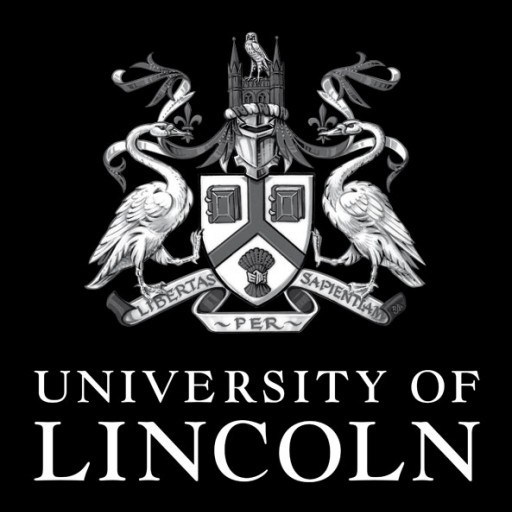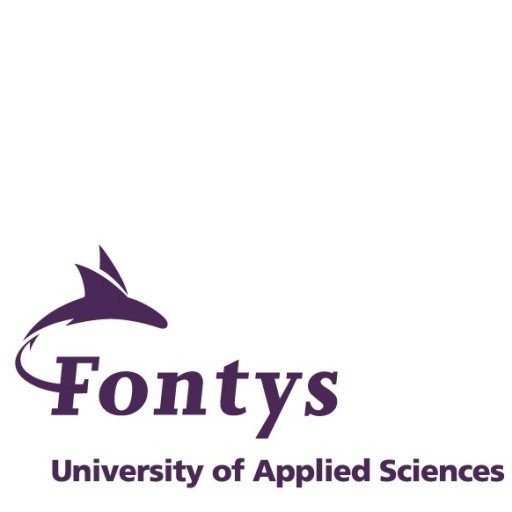"Engineering Management at the University of Lincoln is a comprehensive undergraduate program designed to equip students with the essential skills and knowledge required to lead and manage engineering projects and teams effectively. This course combines core principles of engineering with managerial strategies, enabling graduates to operate at the intersection of technical expertise and organizational leadership. Throughout the programme, students will explore topics such as project management, systems engineering, quality assurance, innovation management, finance, and leadership in engineering contexts. The curriculum emphasizes practical skills through laboratory work, industry placements, and case studies, ensuring that graduates are well-prepared to meet the demands of modern engineering industries. The program also fosters critical thinking, problem-solving, and communication skills, which are vital for career advancement in competitive environments. With a focus on sustainable practices and emerging technologies, Engineering Management at Lincoln prepares students to drive innovative solutions and improve operational efficiencies across various engineering sectors. The course benefits from strong links with industry partners and employs a blend of lectures, workshops, and collaborative projects to enhance learning outcomes. Graduates of this program typically pursue careers in project management, operations management, consulting, quality assurance, and other leadership roles within engineering organizations. The University of Lincoln’s state-of-the-art facilities and dedicated academic staff provide an excellent learning environment. Students are encouraged to participate in research activities, professional development opportunities, and networking events to broaden their expertise and industry connections. Overall, the Engineering Management degree aims to produce forward-thinking professionals capable of managing complex engineering projects while contributing to technological innovation and sustainable development."
Detailed Course Facts
Application deadline 15 January Tuition fee- GBP 9000 Year (EEA)
- GBP 11798 Year (Non-EEA)
- English
Course Content
Level 1
Analysis of Business Data
This introduces some quantitative techniques fundamental to the analysis of business data. It promotes a critical awareness and understanding of some of the processes, techniques and technology by which numerical information can be collected and communicated. Students practise the systematic use of appropriate industry-standard computer technology for the acquisition, analysis and presentation of data (for example, Excel or SPSS).
Contemporary Business Analysis
Students are introduced to a range of economic concepts and basic analytical techniques. Upon successful completion students are able to:
- Explain the workings of the price mechanism, the labour market and various forms of market failure
- Explain the relationship between the firms costs, revenues, prices and outputs within various market structures
- Analyse the interaction between entrepreneur, the firm and its external environment
- Analyse the inter-relationships between government and key macro-economic indicators
- Understand the links between the internal and external economy and how this impacts on the firm and its external environment.
Financial Communications
Students develop an understanding of the relevance of finance and accounting and some of the current issues facing business people. It is not an introduction to the technical side of accounting, rather, non-specialists can gain the ability to understand and comment upon issues which will arise upon pursuing a business career. Most organisations spend considerable time and money producing 'Financial Communications' and the module examines the underlying reasons behind this behaviour and the extent to which these communications achieve their objectives.
Introduction to Business Law
This serves as an introduction to the English legal system and English contract law. The module is designed to give students a basic understanding of contract issues in England and will enable students to appreciate when a legally binding agreement comes into existence, the obligations involved and the consequences of breaking such agreements. Contract law underpins a companys dealings with its customers, employees and suppliers. It is important that students appreciate the legal context in which everyday business decisions are made.
Organisational Behaviour 1: Evolving Perspectives of Management (Option)
(Option) It is suggested that organisational structure affects human behaviour in organisations and that strategy, structure and culture are closely related, although rarely considered together. To set contemporary management behaviour in context, an understanding of the evolution of management theory is necessary, together with a consideration of organisational structure. Accordingly, a number of competing and contrasting perspectives of past and present thinking on management are explored, together with an acknowledgement that some approaches are complementary, whilst others are in conflict and recognition that 'new' management thinking and methods may simply be repackaged familiar, old ideas. The term 'organisational behaviour' relates to the activities and interactions of people in organisations. Organisational behaviour has been defined as the 'inter-disciplinary body of knowledge and field of research, concerned with how formal organisations, behaviour of people within organisations and salient features of their context and environment, evolve and take shape, why all these things happen the way they do and what purposes they serve'. In considering the changing and evolving roles of management and managers, the module acknowledges that the study of organisational behaviour is multi-disciplinary and draws in particular from psychology, social psychology, sociology, economics and political science.
Organisational Behaviour 2: Management in Context (Option)
(Option) This module focuses on the impact of group dynamics on the individual, the impact of personality when working with others, and considers the impact of both group dynamics and personality on the workplace from a management perspective. The module seeks to consider the impact of groups on individual behaviour, while observing the impact of individual personalities. The programme introduces theories and models relating to group work while the extent to which students already perceive themselves as managers is explored.
Principles of Marketing
This module is designed to provide an introduction to the theory and practice of marketing. We aim to familiarise students with the key concepts and issues of marketing, giving them a thorough grasp of the sort of marketing decisions there are to be made and what factors affect them. To start with, learning will be fairly directive - e.g. compulsory reading, and tutor led seminar discussion. Progressively students will be required to become more independent in their work by making their own reading selections and actively presenting during seminars. Students will also experience two different assessment types: individual essay writing and a group presentation. In addition to the course contents, this training will help students become better prepared for some of the other modules they take in the future.
Level 2
Contemporary International Business Issues (Option)
This module explores a range of issues that emphasise the increasingly international business environment. These issues are underpinned by appropriate theory so that students can explain and analyse them using appropriate conceptual tools. For operational efficiency, the module is split into two elements. The first focuses on the international business environment and the second on domestic contemporary issues.
Contemporary Issues for Business (Option)
This module explores a range of issues that emphasise the increasingly international business environment. These issues are underpinned by appropriate theory so that students can explain and analyse them using appropriate conceptual tools. For operational efficiency, the module is split into two elements. The first focuses on the international business environment and the second on domestic contemporary issues.
Critical HRM: Managing Diversity
This module engages critically with diversity and equality issues in contemporary organisations. Evaluation of current organisational strategies to promote and manage equality and diversity are key elements of this module. Critical examination of the role of 'social justice' and 'competitive business' are also incorporated. Social, ethical and philosophical dimensions of diversity in terms of gender, age, race, sexuality and disability will be explored, along with their practical implications.
Management Finance (Option)
(Option) The module includes revision in financial analysis, cash flow planning, budgets and variance analysis, finance and contemporary performance management. At its conclusion, students should have a solid understanding of the key elements of financial accounting, management accounting and finance that inform and affect the manager. Furthermore, students thus have a platform in the principles, models and issues that underpin the advanced aspects of the subject area.
Management Finance A (Option)
(Option) This module includes revision in financial analysis, cash flow planning, budgets and variance analysis, finance and contemporary performance management. At its conclusion, students should have a solid understanding of the key elements of financial accounting, management accounting and finance that inform and affect the manager. Furthermore, students thus have a platform in the principles, models and issues that underpin the advanced aspects of the subject area.
Managing the Environment for Tourism and Events (Option)
This module will introduce you to some of the environmental problems associated with tourism and events, and the methods and strategies for environmental protection and management that are relevant to the industries. The focus will be on the management of businesses and operations. There are many management methodologies for various aspects of the environment which may be affected by tourism and events (or vice versa), at various scales of influence. As much of this activity takes place in the natural environment, the need for greater awareness of the natural environment and for better management strategies should be more immediately evident than in other sectors of industry. These management methods can be group as managing the site or destination; managing the sites users or visitors; and managing the wider environmental impacts. Examples of these methods and their underlying theories (for example, carrying capacity and sustainable development, environmental impact assessment, carbon footprint analysis and carbon offsetting) will be explored in detail.
This module therefore aims provide you with an overview of some of the practical methods available to the tourism and events industries to reduce the negative impacts on the environment, increase the chances of sustainability being achieved and raise awareness of the environmental issues specifically associated with the industries.
Marketing in Practice (Option)
(Option) This module considers the key influences on marketing, helping students to understand the issues involved in making marketing mix decisions, the relevance of competition to marketing decisions, the implementation of marketing in the organisation and selected applications of marketing. It is both theoretical and applied in nature, requiring students to use relevant concepts, models and frameworks both in the analysis of case material and when developing their own product concept. The module is broad-based covering many marketing topics and providing for the steady progression of students from certificate level through to the more demanding and strategic subject material of higher level marketing. Organisations rarely exist in a non-competitive vacuum therefore a key theme of the unit is the understanding and relevance of the concept of competitive advantage. This theme is developed throughout the unit by highlighting how marketing decisions at an operational level have a crucial part to play in delivering a unique and sustainable position for a company versus its competition. A second theme is the European flavour of the program which is developed throughout.
Marketing in Practice A (Option)
This module considers the key influences on marketing, helping students to understand the issues involved in making marketing decisions, the relevance of competition to marketing decisions, the implementation of marketing in the organisation and selected applications of marketing. It is both theoretical and applied in nature, requiring students to use relevant concepts, models and frameworks both in the analysis of case material and when developing their own product concept.
Operations Management A (Option)
This module responds to the need for students to understand the issues surrounding the management of resources and operations.
The module sets these issues in the context of:
Understanding organisations as 'systems' seeking to remain viable within their environments
The notion of 'operations management' as the act of aligning processes and systems to deliver an overall strategy and its marketing objectives, in both the service and the manufacturing environments.
Research Methods for Tourism and Events (Option)
This module provides students with a range of research skills, both quantitative and qualitative. In so doing it prepares students for their final year dissertation by giving them the skills, ideas and confidence to undertake a major piece of primary research. The module also encourages students to evaluate research using the key concepts of reliability and validity.
Study Period Abroad (Option)
The exchange programme is a compulsory requirement for the award of the BA (Hons) International Business Management in the three year version of the programme for those students not taking the industrial placement. The study placement takes place in Semester B of Level Two. During the semester abroad, students share classes with local students. The study placement will allow students to benefit from the opportunity to examine the nature of business in their respective countries and to 'socialise' in another culture.
Level 3
Business Project Management (Option)
(Option) Business project management is considered an important management philosophy for how organisations manage changing business environments. All projects have to be managed to a successful conclusion, which relies on complex and important decisions being made through phases of planning, monitoring and controlling. The module focuses on the issues of planning, organisational, procedural, systematic and financial management in order to create a project management structure for a modern business context.
Contemporary Issues in Human Resource Management (Option)
This module provides an opportunity to draw on current research and professional practice into human resource management and development. The module introduces students to contemporary topics that are both practically and theoretically relevant. The topics/issues/research under consideration may vary year on year but at the heart of our concerns is a desire to draw upon Certificate and intermediate level study in order to consider the implications that contemporary human resource management and development theories hold for practitioners. In this context, the limitations of traditional approaches to human resource management practice will be explored and critiqued. Students will be required to apply their learning to emergent business issues, practices and challenges.
Crisis and Disaster Management (Option)
Events are not immune from disaster or crisis. This module explores the notion of risk and how this influences consumer behaviour and contemporary management practice. Through examination of a series of case studies, from organisations to places, it develops a critical understanding of risks, crises and disasters that can affect the events, tourism and sports industries. Students develop an understanding of contingency planning and crisis management practice in the 'experience' industries. The use of simulations and engagement with practitioners enhances the students practical knowledge of the processes and procedures associated with crisis management.
Dissertation (Business) (Option)
(Option) The dissertation is a major independent piece of work intended to develop a students ability to actively engage with core disciplinary issues. Students should demonstrate the ability to identify, organise and select from a large body of material in order to produce a coherent, well defined and internally consistent representation of their findings. Students work with their supervisor to research, develop and present their study for assessment following the agreed formats as prescribed by Lincoln Business School.
Economic Geography (Option)
This unit aims to equip students with an analytical framework with which they can interpret and explain spatial economic processes, structures and change at a regional and sub regional levels. This will enable students to identify the nature of spatial economics; a scale of analysis gaining increasing relevance in the context of International Economic integration.
Entrepreneurship and Venture Creation (Option)
(Option) The entrepreneurship route has been designed so that students are prepared to pursue careers as owner/managers and contemporary business managers, and understand the issues of modern entrepreneurial activities in contemporary environments. Students also examine the general principles of entrepreneurship and entrepreneurial activity, within a variety of settings.
European Business (Option)
(Option) The first part of the module aims to provide students with an understanding of the economic and political rationale for the European Union. The module then considers the development of key policies and themes as they affect business, for example, liberalisation, and industrial and enterprise policies for small, medium and large-scale enterprises. It also examines policies that have proved to be particularly controversial, such as social and labour market policy, EMU, as well as the current challenges arising from recent and future enlargements. Finally, the module examines the regional dimension of the European Union in the external context, including the challenges of competing in the global business environment and the role of the European Union as a key participant in international governance.
Global Marketing Strategy (Option)
The main aim of this module is to assist you in becoming equipped with a range of skills which will enable you to think strategically in the context of this globalised business world. We consider the strategic marketing implications for companies operating in a rapidly changing and dynamic global business environment. For many organisations, the importance of a global perspective and strategy is vital to long-term success. Competitive marketing strategy, examined in a global context, is a market oriented approach that establishes a profitable and sustainable position for the firm against all the forces that determine industry and ultimately international conditions of trading.
This module is about how organisations create and maintain a viable position in todays complex business world. The unit seeks to examine the kind of thinking that can underpin successful marketing strategies and their practice. Successful marketing organisations are the ones which now and in the future will have the skills to manage multiple strategic processes. In the course of this module you will have full opportunity to examine and think about this multifaceted perspective on marketing.
International Business
The study of international business relates to the operation of business organisations across national boundaries. In order to develop an understanding of international business this module examines how internationalisation has occurred principally through trade and investment. From both a theoretical and practical perspective the module investigates the international environment from the nature of international business, the international environment - from the role and function of international organisations to the international payments systems, in addition to the environmental forces faced by the international firm. In so doing it brings forward new issues, both internal and external, which impact on business activity.
Marketing Communications (Option)
Marketing communications is one of the most noticeable and widely discussed instruments of the marketing mix and has an enormous impact on both society and the business world. Every private consumer is exposed to advertising and takes advantage of sales promotions, buys famous brands and visits stores which try every trick in the book to influence our buying behaviour. Likewise, organisations are equally desperate to communicate effectively with their business customers and suppliers.
Marketing executives face the challenge of integrating the strengths of the various promotional tools to build successful brands and to achieve competitive advantage. In a business environment where the price and quality of goods or service may be equally matched within a sector, what we say, how we say it and to whom - can make all the difference. Marketing communications is of interest to everyone
The module places marketing communications in context, then discusses the implications of buyer behaviour, how we learn, how we communicate and how we process the information we are bombarded with each day! We look at the implications for marketers trying to find a way through to their customers, be it the consumer or a business customer.
Strategic Management
Strategic management draws upon and integrates a range of business disciplines in examining both theory and practice. In so doing, it bridges the gap between discrete functionalist perspectives and the broader issues involved in general management activity. The module examines the overall challenges, issues and solutions, which are associated with the running of modern organisations.
Requirements
Applicants should have a minimum of 280 UCAS Tariff points from a minimum of two A Levels (or the equivalent). In addition to the minimum of two A Levels, other qualifications such as AS Levels, the Extended Project and the ASDAN CoPE for example, will be counted towards the 280 point requirement.
We also accept a wide range of other qualifications including the BTEC Extended Diploma, Diploma and Subsidiary Diploma, the European and International Baccalaureate Diplomas, and Advanced Diplomas.
Applicants will also be required to have at least five GCSEs at grade C or above (or the equivalent), including English Language and Maths.
Applications are welcomed from mature students who are studying towards an Access to Higher Education programme. A minimum of 45 level 3 credits at merit or above will be required. We will also consider applicants with extensive relevant work experience.
For international students who do not meet criteria for direct entry to this degree we offer the International Year One in Business and Management. Depending on your English language level, you will study 3 or 4 terms then progress directly to the second year of this degree.
Work Experience
No work experience is required.
Related Scholarships*
- Academic Excellence Scholarship
"The Academic Excellence Scholarship can provide up to a 50 % reduction in tuition per semester. These scholarships will be renewed if the student maintains superior academic performance during each semester of their 3-year Bachelor programme. The scholarship will be directly applied to the student’s tuition fees."
- Access Bursary
Bursary for UK students all subjects where the variable tuition fee rate is payable.
- Alumni Bursary
Alumni Bursary for UK Undergraduate students
* The scholarships shown on this page are suggestions first and foremost. They could be offered by other organisations than University of Lincoln.
Engineering Management at the University of Lincoln is a dynamic and comprehensive program designed to equip students with the essential skills and knowledge required to lead engineering projects and teams effectively. Combining principles of engineering, management, and business strategy, the course prepares graduates to operate at the intersection of technical expertise and organizational leadership. The curriculum includes core modules in project management, systems engineering, supply chain management, innovation, and entrepreneurship, along with specialized topics such as risk management, sustainability, and technological change. Delivered through a blend of lectures, practical workshops, industry placements, and group projects, the program emphasizes real-world applications and interdisciplinary collaboration. Students are encouraged to develop their critical thinking, problem-solving, communication, and leadership capabilities, which are vital for managing complex engineering operations and driving innovation within organizations. The program also emphasizes the importance of ethical considerations, sustainability practices, and global perspectives in engineering management. The University of Lincoln's state-of-the-art facilities, industry partnerships, and strong focus on employability ensure that graduates are well-prepared for careers in manufacturing, construction, consultancy, and technology sectors. Additionally, students have opportunities to engage in research projects, work placements, and networking events that enhance their professional development and employability prospects. The program aims to foster a proactive, adaptable mindset, enabling graduates to respond to the rapid technological advancements and evolving industry demands. Overall, Engineering Management at Lincoln combines technical engineering knowledge with strategic management skills to produce versatile professionals capable of leading projects and driving innovation in diverse technical fields.










